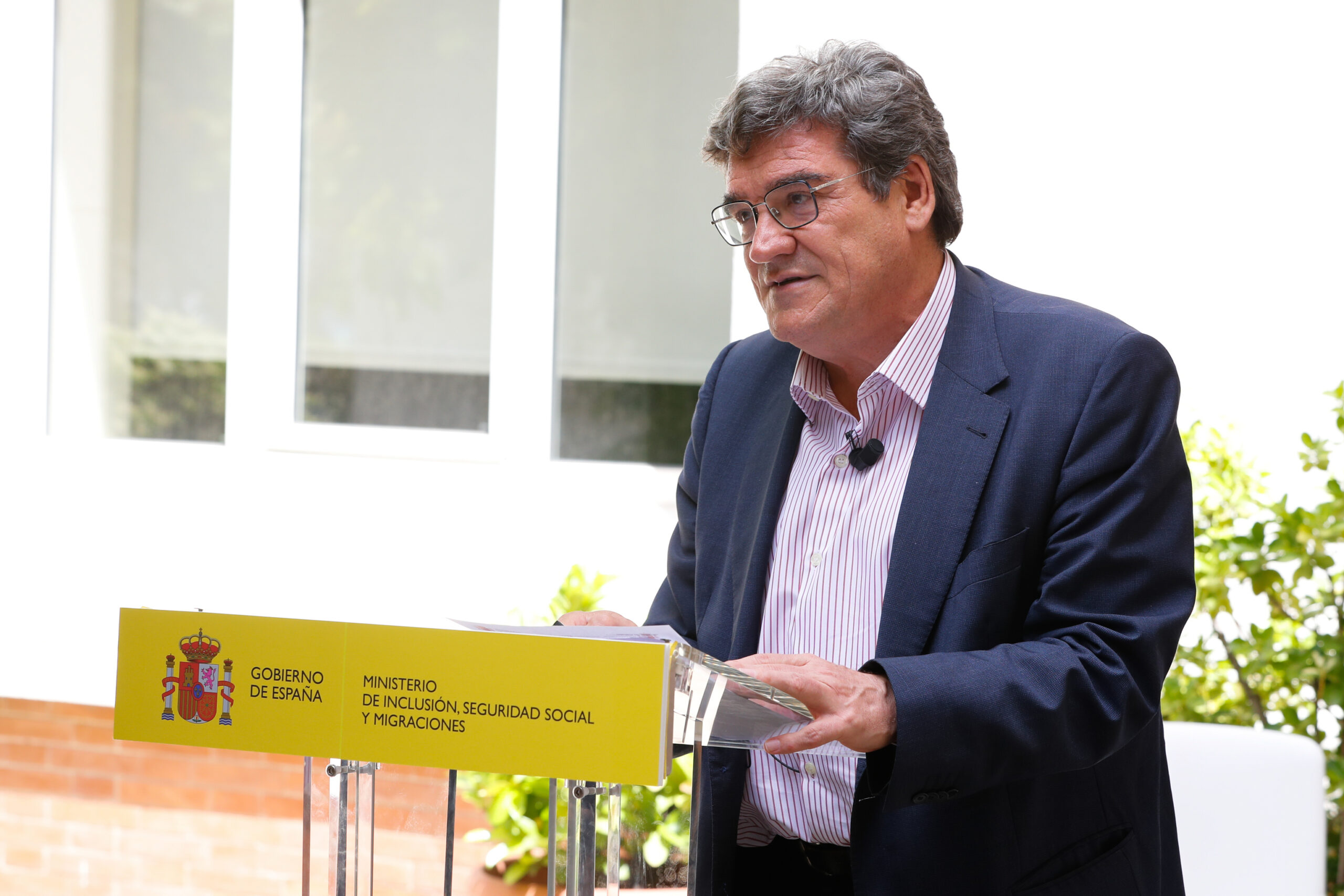It benefits 445,000 pensions, will be temporary and will entail a monthly cost of 30 million euros. This is the agreement that the Minister of Social Security, José Luis Escrivá, has reached with Bildu to raise non-contributory pensions by 15%, and which is part of the new decree that the Government must approve in order to extend the planned measures to deal with the economic consequences of the war in Ukraine.
The non-contributory pensions contemplated by Social Security are for disability and retirement for those citizens over 65 “in a state of need” even if they have not contributed or have done so insufficiently. In the first case, the average pension amounts to 461.69 euros and in the second to 427.56 euros per pay.
The monthly payroll for these 445,000 beneficiaries of these benefits is close to 200 million euros, so that the measure would have a budgetary cost of 30 million euros per month. The Government only contemplates a new decree that lasts until the end of September, with which the budgetary cost would amount to 90 million euros. But Escrivá has committed to the nationalist party to include this increase in its successive extensions until finally a revaluation of said pensions is contemplated according to the CPI in the General State Budgets that the Executive assumes that it will approve for the year 2023 .
Escrivá himself also maintained cold blood this Friday after the chaos experienced yesterday in the Labor Commission that processed the pension plan law, a procedure that resulted in the approval of several amendments contrary to the reforms that he himself proposes.
These amendments are the stoppage of contributions and the cut to deductions in personal income tax for contributions to pension plans. If approved under these conditions, the Minister of Social Security would see as one of the axes of the reform of the system, the promotion of complementary plans to public pensions would lose much of its interest for companies and workers who must make contributions extraordinary, since individual plans have already lost fiscal attractiveness. The unstopping of the maximum contribution bases is scheduled but not under current conditions.
Escrivá has recalled that “it is not agreed” the elimination of incentives or the elimination of the limits of the maximum bases. In his opinion, they are “extemporaneous” measures and “they were discussed and much discussed”, although he defended that “it is legitimate” for a parliamentary group to propose its amendments. However, he insisted that “this was not in the agreements reached”, which “was clear on both sides”.
In this way, a parliamentary process that closed the amendments to the pension plan law on March 30 will arrive alive and waiting for changes until the last moment, that is, on Thursday of next week, June 9. The PSOE, which accepted the amendments by mistake, will record a particular vote annulling them to approve the rule under the conditions that the Government itself had negotiated.
It is to be hoped that the Executive’s partners respect those agreements reached with Escrivá and his team. Otherwise, the first consequence that the approval of the law would have would be that the construction pension plan pending the norm and that has a potential of 1.7 million participants would collapse due to lack of interest from the companies.
Conforms to The Trust Project criteria
















